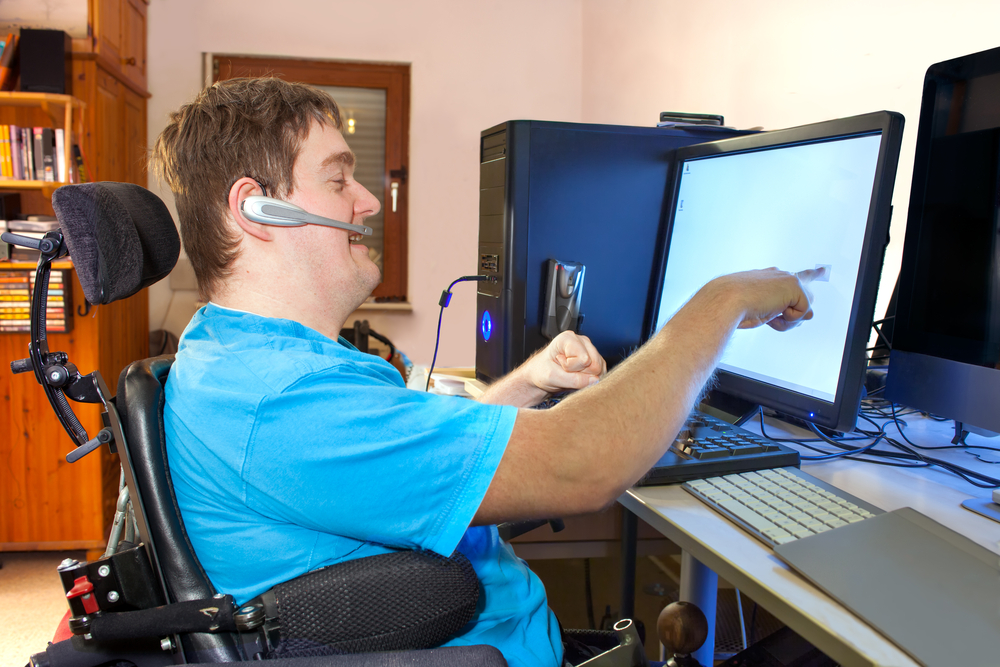Make an Appointment
As parents, we want our children to develop strong communication skills. However, some children may struggle with speech and language development, which can be concerning and challenging to know how to support them. Fortunately, there are effective interventions available, such as enrolling them in a preschool program specifically designed to address speech delay with the help of a speech-language pathologist. This article will provide an overview of speech delay, early intervention, and the benefits of enrolling in a preschool program with Physio Inq's Speech Pathology services.
Table of contents
I. What is Speech Delay?
II. Causes of Speech Delay
III. How Speech Delay Affects Children
IV. Early Intervention: Why it's Important
V. Speech Pathology and Early Intervention
VI. Benefits of Enrolling Your Child in a Preschool for Speech Delay with Physio Inq's Speech Pathology Services
VII. How Can I Help My Preschooler with Speech Delay?
VIII. Conclusion
What is Speech Delay?
Speech delay is a common condition where a child's speech and language development is slower than what is considered typical for their age**. It can affect a child's ability to communicate effectively and can impact their social interactions and academic performance.** Speech delay is usually diagnosed when a child is significantly behind their peers in speech and language development.
Speech delay can manifest in different ways, and the severity and causes of speech delay can vary from child to child. Some children may struggle with specific sounds or words, while others may have difficulty with grammar or sentence structure. In some cases, speech delay may be caused by underlying medical conditions such as hearing loss or developmental disorders like autism spectrum disorder.
Speech delay can have a significant impact on a child's development, including their social interactions, academic performance, and self-esteem. Children with speech delay may struggle to communicate effectively with their peers, leading to feelings of isolation and frustration. This can also lead to difficulties in school, as communication is essential for learning and socializing.
Early intervention is critical for children with speech delay. The earlier a child receives support and therapy, the greater their chances of catching up to their peers and improving their communication skills. In our previous blog article on "Speech Therapy for Toddlers: Early Intervention Strategies for Improved Communication," we discussed how early intervention is key in treating speech delay and improving a child's communication skills. Speech therapy is an effective treatment for speech delay, and a speech-language pathologist can help identify the cause of a child's speech delay and provide appropriate therapy and support.
In addition to speech therapy, there are also other interventions that can help children with speech delay. For example, parents can help support their child's language development by reading to them regularly, using simple and clear language when communicating, and encouraging their child to speak and express themselves.
Overall, speech delay is a condition where a child's speech and language development is slower than what is considered typical for their age. It can affect a child's ability to communicate effectively and can impact their social interactions and academic performance. Early intervention with speech therapy and other supportive interventions is critical for children with speech delay to improve their communication skills and reach their full potential.
Causes of Speech Delay
Speech delay can have a variety of causes, and the severity and type of speech delay can vary from child to child. Some of the common causes of speech delay include:
Hearing loss: Children with hearing loss may have difficulty hearing and processing sounds, which can impact their ability to develop language and speech skills.
Developmental disorders, such as autism spectrum disorder: Children with developmental disorders like autism spectrum disorder may have difficulty with communication and social interaction, which can impact their speech and language development.
Cognitive or intellectual disabilities: Children with cognitive or intellectual disabilities may struggle with language and speech development due to difficulties with understanding and processing information.
Genetic factors: Some genetic conditions, such as Down syndrome, can impact a child's speech and language development.
Physical abnormalities, such as cleft palate: Physical abnormalities in the mouth or throat, such as cleft palate, can make it difficult for a child to produce sounds and words correctly.
Environmental factors, such as a lack of exposure to language: Children who do not receive enough exposure to language in their environment may struggle with speech and language development.
It is important to note that in many cases, the cause of speech delay may be unknown or multifactorial, meaning that there may be several contributing factors. It is important to work with a speech-language pathologist to identify the cause of a child's speech delay and develop an appropriate treatment plan.
Speech-language pathologists can provide assessments to identify the cause of speech delay, and they can also provide appropriate therapy and support to improve a child's speech and language development. In some cases, other medical or educational professionals may also be involved in the child's treatment plan. By working together, parents, professionals, and the child can improve communication and language skills, which can lead to better social interactions, academic performance, and overall quality of life.
How Speech Delay Affects Children
Speech delay can have a significant impact on a child's development, including their social interactions, academic performance, and self-esteem. In our previous blog article on "Why is Speech And Language Important in Your Child’s Development?", we discussed how speech and language skills are essential for a child's development and success. Children with speech delay may have difficulty expressing themselves, understanding instructions, and interacting with others. This can lead to frustration, anxiety, and low self-esteem. It can also impact their academic performance and future opportunities.
In addition to social and emotional impacts, speech delay can also have an impact on a child's academic performance. Communication is essential for learning and socializing in the classroom, and children with speech delay may struggle to keep up with their peers academically. This can lead to difficulties with reading, writing, and other academic skills.
Over time, the impact of speech delay can also have long-term consequences. Children with speech delay may struggle to develop critical language and communication skills that are necessary for success in their future academic and professional careers. Without appropriate intervention, speech delay can have a lasting impact on a child's future opportunities and quality of life.
It is important for parents to seek early intervention for their child's speech delay to prevent these negative impacts. A speech-language pathologist can help identify the underlying causes of speech delay and provide appropriate therapy and support to improve a child's communication skills. By addressing speech delay early, parents can help their child develop the language and communication skills they need to succeed in school and beyond.
Research has shown that early intervention is crucial for children with speech delay. The earlier a child receives support and therapy, the greater their chances of catching up to their peers and improving their communication skills. In our previous blog article on "Why is early intervention important for speech and language?", we discussed how early intervention can help prevent or minimize the negative impacts of speech delay on a child's development. Early intervention can also help improve a child's language and communication skills, leading to better social interactions, academic performance, and overall quality of life.
Speech Pathology and Early Intervention
Speech-language pathologists are trained professionals who specialize in speech and language therapy. They can help identify the cause of a child's speech delay and provide appropriate therapy and support. With the help of Physio Inq's Speech Pathology services, children can receive assessments, therapy, and support to improve their speech and language development. Early intervention is critical for children with speech delay, and speech-language pathologists can provide the necessary support and therapy to help children catch up to their peers and reach their full potential. By working together with parents and other professionals, speech-language pathologists can help children overcome speech delay and develop the language and communication skills they need to succeed in school and beyond.

Benefits of Enrolling Your Child in a Preschool for Speech Delay with Physio Inq's Speech Pathology Services
Enrolling your child in a preschool program specifically designed to address speech delay with Physio Inq's Speech Pathology services can provide a variety of benefits. These benefits include:
1. Early intervention from trained professionals: Speech-language pathologists at Physio Inq have specialized training and expertise in identifying and treating speech and language delays in young children. Early intervention from these professionals can help your child catch up to their peers and improve their communication skills.
2. Structured learning environment focused on speech and language development: Preschool programs for speech delay provide a structured learning environment where children can focus on developing their speech and language skills. This includes opportunities for individual and group therapy, as well as structured activities and playtime.
3. Socialization opportunities with peers: Preschool programs for speech delay provide opportunities for children to socialize with their peers in a supportive environment. This can help improve social interactions and communication skills.
4. Individualized care with low student-to-teacher ratios: Preschool programs for speech delay provide individualized care with low student-to-teacher ratios. This allows speech-language pathologists to provide personalized attention and support to each child.
5. Supportive environment for children with speech delay: Preschool programs for speech delay provide a supportive environment for children with speech delay. Children can learn and grow at their own pace, without feeling left behind or frustrated by their peers.
How Can I Help My Preschooler with Speech Delay?
As a parent, there are several ways you can help support your child's speech development, including:
Reading to your child regularly and encouraging them to repeat words and phrases: Reading to your child is an excellent way to expose them to language and develop their vocabulary. Encouraging your child to repeat words and phrases can also help improve their speech and language skills.
Using simple, clear language when communicating with your child: Using simple, clear language when communicating with your child can help them understand and process language more easily. It can also help improve their own communication skills.
Encouraging your child to speak and express themselves, even if it takes them longer to do so: Encouraging your child to speak and express themselves can help improve their confidence and communication skills. It's important to be patient and allow your child the time they need to express themselves.
Seeking professional help from a speech-language pathologist if needed: If you notice that your child is struggling with speech or language development, it's important to seek professional help from a speech-language pathologist. They can provide assessments, therapy, and support to help your child develop their communication skills.
As a parent, you can also help support your child's speech development by reading to them regularly, using simple and clear language when communicating, encouraging them to speak and express themselves, and seeking professional help if needed.
Common Questions About Speech Delay
Parents may have many questions about speech delay. Here are some common questions and answers related to this topic:
Is it normal for a 4-year-old to have a speech delay?
It's not uncommon for children to have some difficulty with speech and language development, but a significant delay may indicate a need for professional intervention.
At what age is speech considered delayed?
Speech delay is typically diagnosed when a child is significantly behind their peers in speech and language development. A child who shows signs of speech delay at 18 months or older should be evaluated by a speech-language pathologist.
Can children with speech delay catch up?
Yes, with appropriate therapy and intervention, children with speech delay can catch up to their peers in speech and language development.
Can a toddler have speech delay and not be autistic?
Yes, speech delay can occur independently of autism spectrum disorder, and a speech-language pathologist can help determine the underlying cause of the delay.
What are red flags for speech delay?
Red flags for speech delay include a lack of babbling or gesturing by 12 months, no first words by 16 months, no two-word phrases by 24 months, difficulty with understanding or following instructions, and limited vocabulary and difficulty expressing themselves.
Can speech delay be fixed?
Yes, speech delay can be improved with appropriate therapy and intervention from a speech-language pathologist.
When should speech therapy start?
Speech therapy can start as soon as a child is diagnosed with speech delay, typically at 18 months or older.
Does speech delay mean learning disability?
Not necessarily, although some children with speech delay may also have other learning disabilities. A speech-language pathologist can help determine if there are any underlying learning or developmental issues.
What are the three types of speech delay?
The three types of speech delay are expressive language delay, receptive language delay, and mixed expressive-receptive language delay.

Conclusion
Enrolling your child in a preschool program specifically designed to address speech delay with the help of a speech-language pathologist can provide early intervention and support for your child's speech and language development. Physio Inq's Speech Pathology services offer assessments, therapy, and support for children with speech delay. If you suspect that your child has a speech delay, seek the help of a professional and be sure to address any red flags for speech delay. With appropriate therapy and intervention, children with speech delay can catch up to their peers in speech and language development. Physio Inq's Speech Pathology services offer mobile and in-home speech therapy sessions across Australia. To learn more about how they can help your child, speak to their wonderful intake team today at 1300 731 733 or make an appointment or referral. Don't wait to address your child's speech delay - early intervention is key to their success.
Date Published: Wednesday, March 22, 2023
Locate a Children's Speech Pathology
Service Near me
Get the experience & convinence you deserve to support your or a loved one's allied health needs.
Our Children's Speech Pathology team are currently serving & taking appointments in the following states and regions in Australia:
Need to get into direct contact with ur Client Services team? We're all ears. Call our team directly on 1300 731 733









